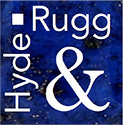
Hyde & Rugg:
We solve hard problems
More useful concepts
- Argumentation involves formally representing chains of reasoning and evidence, often via diagrams.
- Category theory handles categorisation and groups.
- Chunking involves mentally lumping a group of separate activities or concepts into a single unit.
- Compiled skills are skills so highly practised that they can be performed without thinking about them.
- Connectionism is a way of representing knowledge as a set of connected links, rather than as a modular structure.
- Craft skills are informal skills normally viewed as too low-level to merit being formally taught.
- Design rationale is a way of recording the reasons for each decision during design of a product or system.
- Expressive behaviour is behaviour which shows what sort of person you are (c.f. instrumental behaviour).
- Expressive behaviour: A worked example. This article works through the example of a doomsday group.
- Facet theory involves being able to categorise the same topic in more than one way (e.g. via several hierarchies).
- Graph theory is a body of mathematics that deals with networks. It’s invaluable for representing knowledge.
- Game theory involves formally modelling the outcomes from interactions between different strategies.
- Instrumental behaviour is about getting something done, as opposed to expressive behaviour (qv).
- Instrumental behaviour: A worked example. Instrumental aspects of a doomsday group’s behaviour.
- Liminality involves places of transition, e.g. between a sacred space and a normal one.
- The mathematics of desire is an informal description for regularities in human aesthetic preferences.
- Necker shifts occur when you realise that there’s a completely different way of viewing the same object or situation.
- The Pareto principle is another name for the 80:20 principle, where 80% of one thing comes from 20% of another.
- Passive ignorance vs active ignorance is about happening not to know something, versus not wanting to believe it.
- Pixy dust is an informal name for indicators of excellence that don’t require much space.
- Prototype theory is a form of category theory based on the idea of varying degrees of category membership.
- Range of convenience refers to the contexts in which a term can meaningfully be applied.
- Schema theory is about mental templates, such as the schema for a sports car as opposed to a town car.
- Script theory is a form of schema theory that deals with mental templates for events and activities.
- Significant absence is when the absence of something is significant (e.g. the dog that didn’t bark in the night).
- Sociotechnical approaches are about the ways that technologies and human behaviours affect each other.
- Spare capacity aka slack is present when a system is not using all of its resources; it’s useful during unexpected demand.
- Subsystem optimisation vs system optimisation involves what’s good for the part versus what’s good for the whole.
- Systems theory is a formal approach describing the behaviour of systems; this often produces surprising effects.
- The uncanny valley occurs when a person or object is neither quite one thing nor another (c.f. liminality).
Material on this website is copyright of Hyde & Rugg unless otherwise stated.